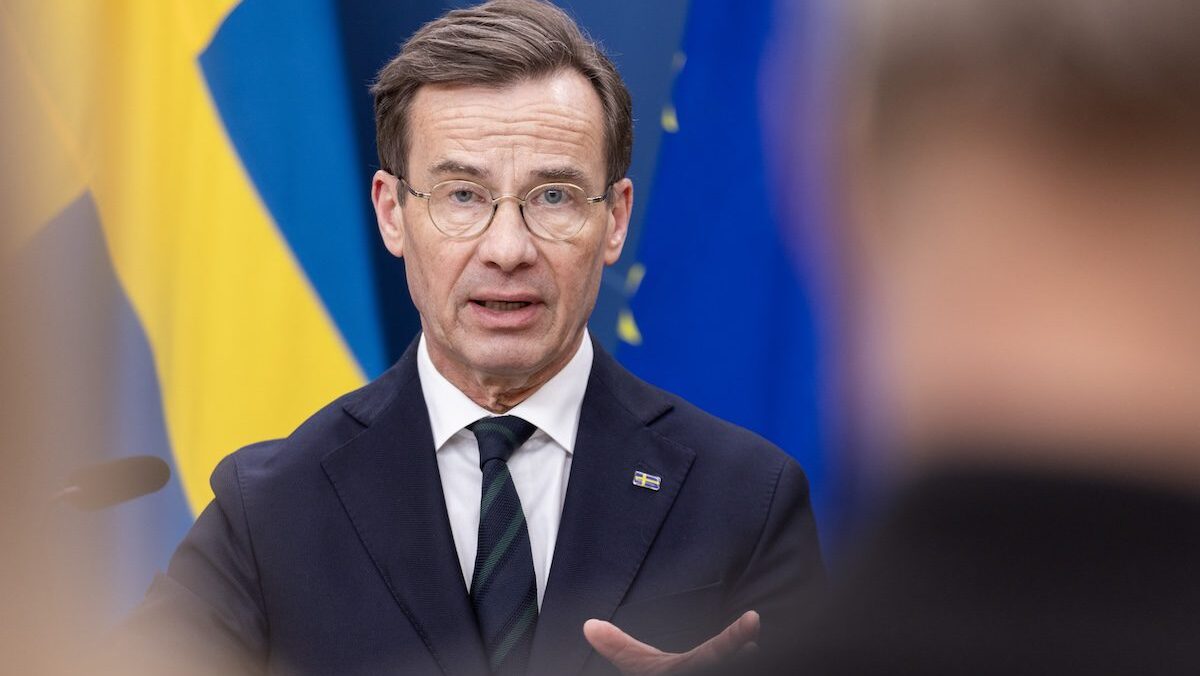
Swedish PM Ulf Kristersson, 30 January 2025.
Photo: Ninni Andersson/Regeringskansliet
32 bombings have occurred across Sweden, and primarily in Stockholm, since the beginning of this year. This explosion of gang-related crimes is down to mass immigration from “dysfunctional countries,” according to the nationalist Sweden Democrats.
"Angående sprängningarna.
— Sverigedemokraterna (@sdriks) January 30, 2025
Massinvandring från dysfunktionella länder och en lagstiftning anpassad för ”det gamla Sverige” är det som har lett fram till de dagligen återkommande sprängningar vi kan läsa om i media. Vi sverigedemokrater har varnat för denna typ av utveckling i… pic.twitter.com/uUXV3jJ6bV
The party has (again) called for migration to be restricted and for criminal migrants to be deported. More broadly, representatives believe it should be made “more difficult for parallel social structures to exist” in Sweden. They are also backing measures meaning dual nationals involved in gang-related crimes can have their citizenship revoked.
Charlie Weimers, an MEP for the Sweden Democrats and vice chair of the European Conservatives and Reformists Group, said last week that he is working to get the issue of mass migration-related crime “back on the agenda in the EU Parliament,” which is no small task.
Gör Europa Säkert Igen
— Charlie Weimers MEP 🇸🇪 (@weimers) January 30, 2025
Bombningar i Sverige, knivhuggningar i Tyskland, sexuella trakasserier i Italien, migrantstormningar vid yttre gränsen och islamkritiker som avrättas.
Massinvandringen är problemet och SD agerar för att få upp frågan på dagordningen i EU-parlamentet… pic.twitter.com/jXguRZOPUl
This problem is not, of course, limited to Sweden. The recent killing of a two-year-old boy and a man by an Afghan asylum seeker in Germany is indicative of a growing crisis there, too. Yet the Berlin establishment appears more concerned about keeping the right-wing Alternative für Deutschland (AfD) party away from power.
In Sweden, the European Union is—for now, at least—more concerned with short-term ‘fixes.’ Europol, the bloc’s law enforcement agency, has been in regular contact with Swedish police to offer assistance against the regular bombings (in one day, as many as five attacks). The national police chief confirmed to Aftonbladet that
We have daily cooperation with Europol and they [will] step up further in this fight when we have a more strained situation.
The Sweden Democrats said in a statement, however, that there is only so much police officials can do within the bounds of “current legislation.” Prime minister Ulf Kristersson has also conceded that at least for now, “it is quite obvious that we don’t have control over the wave of violence,” which is being committed against both companies and citizens.
It remains to be seen whether a worsening situation forces officials in Stockholm—not to mention in Brussels—to go further.
